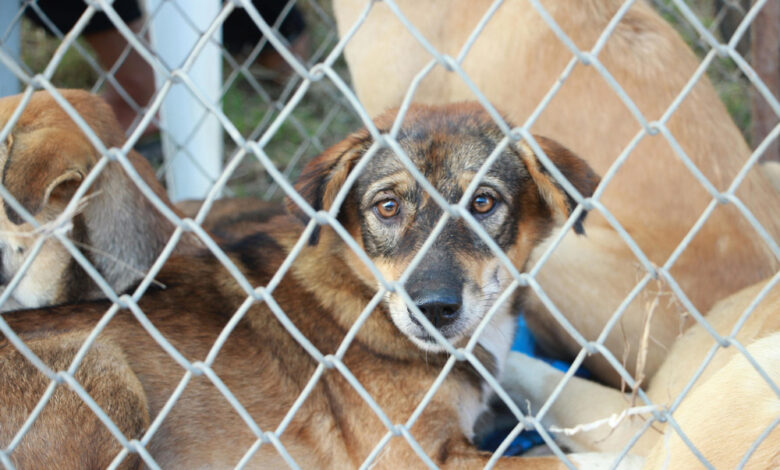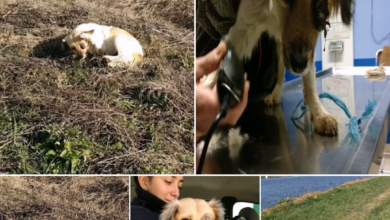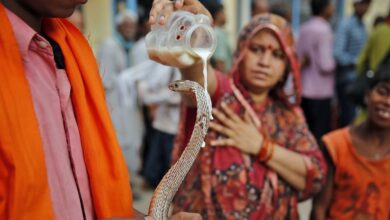South Dakota’s Lax Animal Welfare Laws Leave Pets Vulnerable to Abuse and Death

In South Dakota, pets face a harsh reality due to the state’s weak animal cruelty laws.
While many states have made significant strides in animal protection, South Dakota lags behind, leaving pets vulnerable to neglect and abuse.
This issue gained national attention when Governor Kristi Noem’s controversial actions toward her dog, Cricket, sparked a broader conversation about animal welfare in the state.
 Photo: Pexels
Photo: PexelsSouth Dakota ranks low in animal protection laws.
Weak Legal Protections
South Dakota ranks among the lowest in the United States for animal protection laws. The state lacks essential protections, such as mandatory forfeiture of animals from convicted abusers and bans on ownership of pets by those convicted of cruelty.
The state also does not mandate that social services report suspected animal abuse, a crucial link often missed in cases involving domestic violence and child abuse, the Animal Legal Defense Fund reports.
This lack of legal protection leaves many pets, especially those in rural areas, at risk. South Dakota law permits the killing of dogs that threaten livestock, a practice that is broadly interpreted and can lead to unnecessary harm. Governor Noem’s own admission of shooting her dog Cricket after the dog allegedly attacked chickens shows the leniency in these laws, Above the Law reports.
 Photo: Pexels
Photo: Pexels
The state permits killing dogs that threaten livestock.
The Controversial Case of Cricket
Governor Noem’s account of Cricket’s fate has been a flashpoint for criticism. In her book, she describes how Cricket, a 14-month-old dog, was deemed “untrainable” and “dangerous.” The dog allegedly disrupted a pheasant hunt and attacked chickens, leading Noem to take the extreme measure of shooting Cricket herself, ABC News reports. The governor defended her actions by citing South Dakota law, which allows for the killing of animals that harm livestock, according to KELOLAND.
However, this defense raises ethical concerns. Experts argue that alternative measures, such as professional training or rehoming, were not sufficiently considered. Sara Amundson, president of the Humane Society Legislative Fund, said that Noem’s decision to shoot Cricket rather than seek a more humane solution reflects poorly on the state’s approach to animal welfare.
 Photo: Pexels
Photo: PexelsNo law bans abusers from owning pets post-conviction in South Dakota.
Rural Realities and Misconceptions
It’s important to recognize that rural life can pose unique challenges for pet owners. In South Dakota, dogs are often seen as both pets and working animals. However, this dual role should not justify neglect or inhumane treatment.
The distinction between pets and livestock does not absolve owners of their responsibility to provide proper care and consider humane options for animals exhibiting problematic behaviors, Above the Law maintains.
Noem’s actions have been defended by some as part of the harsh realities of rural life, where practical decisions sometimes take precedence over emotional considerations. However, the public backlash suggests a growing disconnect between such practices and modern views on animal welfare. The story of Cricket is not just an isolated incident but a reflection of broader systemic issues in South Dakota’s treatment of pets.
 Photo: Pexels
Photo: PexelsAnimal welfare laws vary significantly by state.
Moving Towards Better Protection
The controversy surrounding Cricket has reignited discussions about strengthening animal protection laws in South Dakota. Currently, the state has minimal requirements for the treatment of animals, often leaving enforcement up to local jurisdictions.
There is a pressing need for comprehensive laws that not only protect animals from outright cruelty but also ensure they are given proper care and respect.
As more states adopt stringent animal welfare laws, South Dakota’s lack of action stands in stark contrast. The state’s legal framework must evolve to reflect contemporary ethical standards and the growing public concern for animal rights.
The plight of pets in South Dakota highlights significant gaps in the state’s animal protection laws. Governor Noem’s handling of Cricket’s situation has brought these issues to the forefront, revealing a need for stronger regulations and enforcement.
While rural life may present unique challenges, these do not excuse the failure to provide adequate care and humane treatment for pets. It is crucial for South Dakota to update its laws to better protect animals and align with modern ethical standards.
Click below to take action for pets in South Dakota!





